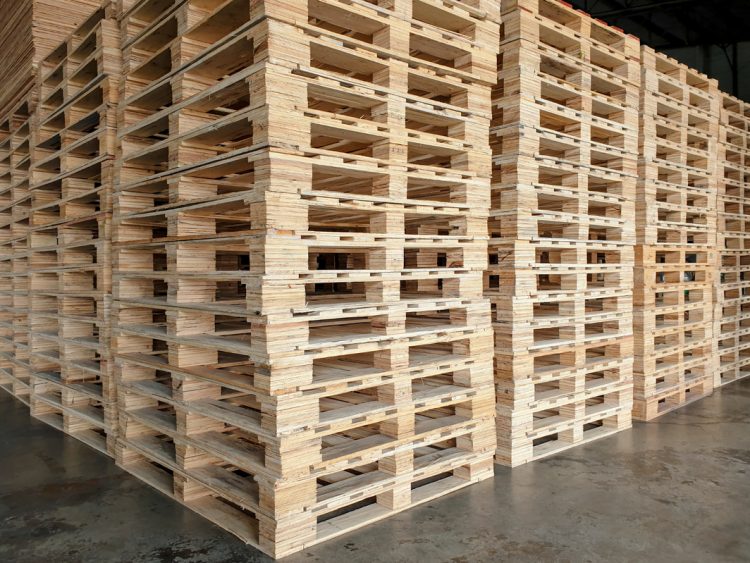In the bustling city of London, where commerce and logistics are the lifeblood of the economy, the humble pallet has emerged as an unsung hero. From warehouses in the outskirts to the high-end retail stores of Oxford Street, pallets play a pivotal role in the seamless functioning of supply chains. This article explores the significance, benefits, and diverse uses of pallets in London, shedding light on why they are indispensable in the modern logistics landscape.
The Importance of Pallets in London’s Logistics
Pallets are flat transport structures that support goods in a stable manner while being lifted by forklifts, pallet jacks, or other jacking devices. They are a fundamental component in the supply chain, facilitating the efficient movement of goods from manufacturers to consumers. In a city like London, where space is at a premium and efficiency is crucial, the use of pallets is vital for several reasons:
Efficiency in Handling and Storage
Pallets allow for quicker and easier handling of goods. Forklifts and pallet jacks can swiftly move large quantities of products, reducing the time and labor costs associated with manual handling. In London’s fast-paced environment, this efficiency is crucial for maintaining competitive advantage.
Maximizing Storage Space
Warehouses and storage facilities in London are often constrained by space. Pallets enable the vertical stacking of goods, optimizing the use of available storage areas. This is particularly important in a city where real estate costs are high.
Protection of Goods
Pallets provide a stable base for goods, minimizing the risk of damage during transit. This is essential for maintaining product integrity, especially for fragile or high-value items commonly found in London’s diverse market.
Types of Pallets Commonly Used in London
London’s diverse commercial landscape necessitates a variety of pallet types to meet different needs. The most common types include:
Wooden Pallets
Wooden pallets are the most traditional and widely used type. They are favored for their strength, durability, and cost-effectiveness. In London, wooden pallets are prevalent in industries ranging from retail to manufacturing.
Plastic Pallets
Plastic pallets are gaining popularity due to their longevity and ease of cleaning. They are particularly useful in industries with strict hygiene standards, such as pharmaceuticals and food and beverage sectors. London’s stringent health regulations make plastic pallets a practical choice for many businesses.
Metal Pallets
Although less common, metal pallets are used in situations requiring extreme durability and load-bearing capacity. They are ideal for heavy machinery and industrial goods, often seen in London’s construction and manufacturing sectors.
Composite Pallets
Composite pallets, made from a blend of materials, offer a balance of strength and environmental sustainability. They are becoming increasingly popular in London, where businesses are seeking greener alternatives.
Environmental Impact and Sustainability
In an era where sustainability is a pressing concern, the environmental impact of pallets is a significant consideration. London, as a global leader in green initiatives, is at the forefront of promoting eco-friendly practices in logistics.
Recycling and Reusability
Wooden pallets are highly recyclable and can be repurposed multiple times. Many companies in London are part of pallet recycling programs, reducing waste and promoting circular economy principles.
Eco-Friendly Materials
The use of pallets made from recycled plastics and composite materials is on the rise. These materials not only reduce the dependence on virgin resources but also lower the carbon footprint associated with pallet production.
Innovative Designs
London-based companies are investing in innovative pallet designs that enhance durability and reduce material usage. Lightweight pallets, for example, contribute to lower fuel consumption during transportation.
Pallets Beyond Logistics: Creative Uses in London
Beyond their traditional role in logistics, pallets have found creative applications across London. From trendy furniture to artistic installations, pallets are being repurposed in innovative ways:
Furniture and Interior Design
The rise of sustainable living has led to an increase in pallet-based furniture. Cafes, restaurants, and homes in London are embracing the rustic charm of pallet furniture, which is both eco-friendly and stylish.
Gardening and Landscaping
Urban gardening is a growing trend in London, with pallets being used to create vertical gardens and planters. This not only adds greenery to urban spaces but also promotes sustainable gardening practices.
Art and Events
Pallets are being used in art installations and event setups across the city. Their versatility and raw aesthetic make them a popular choice for creating unique and eye-catching displays.
Conclusion: The Future of Pallets in London
As London continues to evolve as a global economic hub, the demand for efficient and sustainable logistics solutions will only increase. Pallets, with their versatility and practicality, will remain a cornerstone of this landscape. By embracing innovative materials and designs, and by finding creative new uses for pallets, London is setting an example for cities worldwide.
In conclusion, whether you are a business looking to streamline your supply chain, a homeowner seeking sustainable furniture, or an artist in search of unique materials, pallets offer endless possibilities. Their impact on London’s logistics and beyond is undeniable, making them an essential element in the city’s vibrant and dynamic environment.





